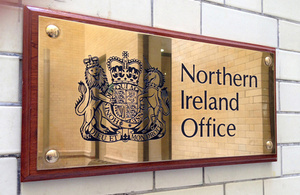Thank you very much indeed Madam President and thank you for putting this very important issue on the Council’s agenda today.
Thank you to the Secretary-General for those insightful words and also to Mr Prendergast. I was very interested in what you had to say about the three things that primarily need tackling and about sanctions having to be extended to networks and about system change. I hope that we will, as the Council considers some of the issues before it, I hope that we will be able to follow some of your prescriptions and debate how more productively we can actually tackle corruption.
It is pervasive, we agree with the speakers so far that is causes, it exacerbates conflict but even more than this, it’s a major obstacle to economic growth and to poverty alleviation. It’s a subterranean current that perniciously undercuts efforts at peace, reconciliation, at community rebuilding and in many cases it causes these efforts to collapse. From my own experience in Kabul, I know what it does to individuals’ willingness to go along with governments trying to do the right thing when they see lower level officials trying to shake them down for the most basic human services.
Losses from corruption total some trillion dollars a year. It holds back economic development, it undermines the provision of public services and it stokes grievances and ultimately, conflict. Kofi Annan in 2003 called it an insidious plague.
The links between corruption and conflict are well established and we’ve heard some of that today. In Syria, we’ve seen how a corrupt government can generate grievances that lead to discontent and then to violence and then to conflict. In the Balkans, much ethnic tension has been fuelled by leaders not living up to their responsibilities. UNODC studies in Iraq, Nigeria and Afghanistan show how once conflict begins, it creates even more opportunities for bribery and other corrupt practices. In turn, this undermines the rule of law and that fuels further conflict. Terrorist groups such as ISIS or al-Qaeda take advantage of corruption. Both to fund their operations but also to attract recruits and fund their ideology.
No country is immune from corruption –I include my own country in that. The fight against corruption therefore needs to begin in our own capitals. I’d like to highlight three steps that the United Kingdom has taken recently to strengthen our own defences.
In 2017, we passed the Criminal Finances Act, which establishes new anti-corruption tools such as unexplained wealth orders. This year, we announced that we would establish a public register listing the beneficial ownership of overseas companies, including in our overseas territories. This will help ensure that the UK is not used as a refuge by corrupt leaders, businessmen and officials. We have also established a National Economic Crime Centre, hosted by our National Crime Agency, to task and coordinate our overall law enforcement response.
But in today’s interconnected world, it is vital that there is a properly joined-up international response so we are very strong supporter of the UN Convention against Corruption. I’d like to take this opportunity to urge all those countries that have not ratified the Convention to do so. The Convention provides an excellent international framework to guide collective efforts but 15 years on from its adoption by the General Assembly, we need to ensure that we maintain momentum and focus on implementation and that the Security Council, ECOSOC and the General Assembly all ensure that their efforts in this regard are mutually reinforcing.
Madam President, in 2016 we hosted an Anti-Corruption Summit in London the hope of stepping up global action. One of the most important outcomes of this Summit we believe was the establishment of the International Anti-Corruption Coordination Centre. This brings together specialist law enforcement officers from six countries to trace the assets and individuals involved in cases of grand corruption.
Asset recovery is a crucial part of efforts to tackle corruption and it’s a fundamental principle of the Convention. In 2017 we co-hosted the first Global Forum on Asset Recovery with the USA, the World Bank and UNODC. This forum helped progress arrangements for returning stolen assets of over $300m to Nigeria.
Chapter VI of the Convention highlights the importance of technical assistance and information exchange. The UK is proud to be working in partnership with several countries to share best practice and develop capacity. In Nigeria, we provide technical assistance and equipment to key agencies fighting international and domestic financial and economic crime, and we work to raise public awareness of corruption.
In conclusion, Madam President, the UK will continue to support a concerted international response to end impunity for those engaged in corruption, recover stolen assets, and empower citizens to stand up to and report corruption. This in turn will help prevent and resolve conflict. The UN has a crucial role to play in this response. We hope all Member States will work together in order to get the better of corrupt leaders, businessmen and officials, and ensure there is no safe haven.
